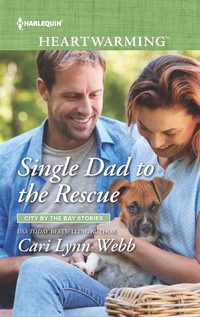
Полная версия
The Doctor's Recovery
An IV line and monitors tethered her to a hospital bed. That she couldn’t tether the giant moths that escaped her stomach and fluttered through her chest annoyed her. Why hadn’t she prepared for this better? Of course, seeing Dr. Wyatt Reid again had never been on her schedule. Neither had an extended stay in the hospital.
She held on to her smile until Dr. Hensen closed her door before glaring at Wyatt. “You didn’t have to admit me. You could’ve treated my wounds and sent me home with Eddy.”
“Should I have sent you home when you passed out in the ER? Or after the hyperbaric chamber when you passed out again?” He moved to the foot of her bed and stared at her. “And the blood loss? Was I supposed to give two CCs of blood to Eddy to pump into you that evening?”
The logic in his questions and composure in his tone grated on her. That something inside her sighed at his presence shoved her into the irrational. “I have a job.”
“So do I.” He gripped the bed frame and leaned forward, fully prepared to take her on. “I took a Hippocratic oath to save lives, including yours.”
An oath that he lived and breathed. Always. Just like she lived for her job. She tipped her chin up and held his gaze. “I cannot miss my deadline.”
“It can wait.”
“Easy for you to say,” she said. “You’re walking around, doing your job just fine like always.”
“You’ll be back doing your job soon enough.”
“Not if I miss this deadline.”
“They’ll understand.”
He didn’t understand. She wasn’t supposed to be the patient. She didn’t make mistakes that could cost her her life or those of her best friends. Those pinpricks turned her stomach inside out, stealing her breath. If they’d just let her leave, then perhaps it wasn’t such a big mistake. And her life could return to normal like she wanted. Why did her old life make her hyperventilate now? She loved the life she’d built with her father.
Wyatt tilted his head and studied her. “Are you afraid to be here?”
“Of course I don’t want to be here.” Not with Wyatt close enough to touch, but so far out of her reach. But that was all wrong. She wanted discharge papers, her old life back more than she’d ever wanted Wyatt. She pressed her fist into the bed. “You do know what happens in places like this.”
“Yes, I know what happens in hospitals.” The softness in his voice slid into his gaze, tempering the cool sleet color. “We save lives.”
“Or not.” She scowled at the fragile crack in her voice and blamed Wyatt for making her weak.
Wyatt walked around to her side and lifted his arm toward her.
Everything in Mia stilled. The air in her lungs, her pulse, all of her waited and wished.
He made a midcourse correction to adjust her IV line, denying her his touch. “I’m really sorry about your dad.”
Mia buried her arm under the covers. She didn’t need his support. She’d never needed that. She’d handle her grief like she handled everything else: on her own terms. Besides, it was his fault she was there. Not entirely, she admitted, but she needed someone to blame to keep her sanity. Otherwise she might crumble beneath the ramifications of her accident. “Why are you here?”
“I work downstairs in the ER.”
“I know that.” She tugged on the blankets, refusing to look at him. “Why are you up here?”
“My mother is down the hall, recovering from a second hip replacement.”
That brought her focus to him. “I’m not your mother.”
“I’ve noticed.” The laughter in his voice melted into his smile.
And ping-ponged something warm through her like the first sip of homemade hot chocolate. She remembered that comforting feeling from their time together. But she hadn’t missed him. She’d chosen to leave and live her life. “Why are you in my room specifically? I’m not your patient.” His name wasn’t on her information board. She was thankful for that, wasn’t she?
“I can’t check up on a friend?” he asked.
“Is that what we are?”
“Unless you prefer another definition for our relationship.”
They had no relationship. Wasn’t that the point? “We haven’t spoken in twenty-six months.”
“That’s rather exact,” he said.
“Yet true,” she said.
“I promised Eddy I’d check on you.”
“Eddy was here?” Relief rushed through her. Nothing had happened to Eddy. Her friend hadn’t suffered because of her error.
“Eddy, Frank and Shane have all been here.” His eyebrows pulled together, highlighting his perplexed voice. “Your crew still follows wherever you lead.”
“They work with me because they want to,” she said. Unlike Wyatt, who’d never follow. He’d wanted to be with her, too, at one time. But only on his terms. And those were terms she would never accept. She crammed her pillow behind her head. “Well, you’ve checked up on me. Dr. Hensen told me to sleep and let my body heal. Could you dim the lights on your way out?”
“I’ll be back.” There was a hint of warning in his tone.
With any luck, she’d be asleep. Mia closed her eyes, shutting him out and severing her awareness of him as anything more than a doctor. Wyatt Reid was a doctor first and always, same as she was a filmmaker first and always.
“If you need me, the nurses know how to find me,” he added before the lights dimmed and silence rushed through the room.
Mia wanted to stuff the pillow over her face and scream. That would no doubt get her another specialist for her care team and a psychological evaluation. There had to be at least ten hospitals in San Francisco, and she’d ended up at the one where Wyatt Reid worked. Not even fate could’ve conjured that twist.
CHAPTER TWO
THE DOOR TO Mia’s room clicked shut, soft and quiet, despite Wyatt’s tight grip on the steel handle. Slamming the door might’ve satisfied him, but he doubted that would be enough to disrupt Mia’s determination to greet her father in the afterlife. Stubborn woman couldn’t see past her current deadline. She’d almost died. Died.
Yet she railed at him for admitting her as if the entire incident was his fault. As if he prevented her from finishing her precious film. Had she learned nothing from her father’s death? She’d brushed off his condolences about her dad like a decade-long chain-smoker given a pamphlet on how to quit.
Still he’d treat her like any other patient, the same as he’d declined to make an exception for his mother. He refused to lose his objectivity only to have them suffer for his misstep. Emotional lockdown was the only prudent course of action. Not that he had to worry with his mom. However, Mia triggered something inside him, something that rattled that lock and disturbed his composure. He simply had to regulate his neurological response to Mia with more precision and resist any urge to be more than a doctor who knew what she needed even if she didn’t. It was past time Mia slowed down, reassessed and grieved.
Of course, knowing what was best for someone didn’t guarantee the person’s agreement or cooperation. That much he learned every day with his mother. He seemed to be surrounded by difficult women. Good thing he’d never walked away from a challenge.
Wyatt slowed at the nurses’ station and met Nettie’s gaze, waiting for the charge nurse’s signal. Wyatt believed in gathering as much information as possible before any confrontation, and when it came to his mother, he’d gather information from any source willing to release it. Nettie smiled. Her thumbs-up allowed the breath he’d been holding to slip out.
His mother’s references to her final days had quadrupled since her first hip surgery eight weeks ago. It’d gotten so bad, her parting line most evenings had been: you’ll need to look for me in the morgue tomorrow if you wish to visit me. After her second hip surgery, she’d revised her morgue commentary and now suggested suitable places to scatter her ashes depending on the season she’d arbitrarily determined would be her last. Fortunately, his mother hadn’t referenced pushing up daisies in the last three days, and every signal from the charge nurse had been positive.
Wyatt knocked on his mom’s door and entered the room. His mother wore her receiving pajamas, the ones with roses and vines that she’d deemed appropriate attire for visitors. That made three days in a row. Wyatt frowned as his mother muttered. Her face was pressed close enough to her notepad screen that her nose would leave an imprint. Even with her glasses on, the strain could trigger another seizure. He’d need to talk to her primary care physician about her seizure medications after her discharge.
“Mom.” He kissed her wilted cheek and imagined she leaned in for his greeting like she’d used to when he was a clumsy kid climbing onto her lap for a good-night hug. But mother and son had stopped leaning on each other years ago. He shoved his useless childhood memories aside and nudged her notepad lower before enlarging the image on her screen with his fingers. One quick glance confirmed the photographs that absorbed all of her attention. He’d forwarded that latest set of pictures he’d taken in her greenhouse to her email account last night.
“Well, that’s much better.” Her focus remained fixed on her screen, but appreciation tinged her voice.
While his mother continued to check the vitals on her precious plants, he took an inventory of her, searching for anything the medical team might’ve missed like last time: new bruises on her arms, involuntary winces of pain, signs of infection. Anything that might signal another unexpected decline.
“The begonia needs to be repotted before the weekend.” She flipped through several more photographs. “The snapdragon seedlings need more light.” She glanced at the window, her eyebrows pulling in behind her round glasses at the fog swirling against the pane. “Bring them into the house and put them under the lights for the next few days.”
“We already put the primrose seeds under the house lights,” he reminded her. Newborns with jaundice belonged under special lights. Preemies required such meticulous care and attention, not plants. But that wasn’t an argument he intended to revisit with his mother. Her greenhouse was a sacred place; everything inside those glassed walls was her family now.
She flicked her hand back and forth as if sweeping away his words like spilled soil. “The pots aren’t too big. They can share the space.”
If only everything in life was so easy and simple. Wyatt and his mother struggled to share the same space.
“You could buy a new light.” She lifted her gaze above her oversize glasses.
No way. He wasn’t adding another UV light. Soon enough the DEA would be knocking down the door to bust him for growing illegal substances, as he had too many lights going now. Either that or the neighbors were convinced he had a deep-seated fear of the dark. The lights matched his night-shift schedule: on all night, off in the morning. With his work schedule changing to days, he’d have to change the plants’ schedule, too. His mother preferred consistency, but it was the best he could do to keep everything alive. In another time, she’d concentrated on her family with the same meticulous consideration. Now her devotion belonged to her plants and the nursery she’d built in her backyard. Not that he wanted her fawning over him as if he was one of her struggling plants. “I’ll make it work.”
She smiled and pulled up another photograph. “The orchid has taken to the new food mixture. There’s happiness in the blooms now.”
But not in his mother. He hadn’t seen real joy in his mother in over five years, long before his brother’s unexpected death. He remembered the lightness in her laughter and happiness on her face when his father would come home and dance her to her seat at the dinner table every night. He’d even witnessed the same dance, the steps slower and more cautious, when he’d returned home from college, months before cancer stole his father and dimmed his mother’s light. Still there’d been moments after the grief had settled and the memories no longer stung. Then came Trent, when love had proved to be a poor antidote to his brother’s inner turmoil and anguish and nothing had slowed his downward spiral. Then not even Wyatt could reignite any sort of happiness in his mother.
He cracked his knuckles. The pop realigned his bones and his focus. He hadn’t slammed the door to Mia’s room, but he could slam the door on memory lane and lock it.
Besides, he needed his mother to concentrate on her recovery and talk about her living situation after room 326 on the transitional care floor at Bay Water Medical. After her discharge, all of his mother’s love could return to her flowers. He only cared that she was safe when she left the hospital. That was his duty as her son. He had her love as a child, that was enough. Something scraped across his insides like a dull razor, leaving deep gouges in its wake. He rubbed his chest and discarded the phantom ache. “Your neighbor in the Craftsman brought over his cactus last night. It’s dead.”
“You didn’t tell Samuel that, I hope.”
“I suggested that he drop it in the recycle bin on his way back home,” Wyatt said.
“I raised you with better manners than that.”
He smiled. He did consider dropping the pathetic plant in the recycle bin himself on his way to work. Even a tempered truth had less cruelty than false hope.
His mother eyed him. “Where’s the cactus?”
“Sitting beside the other neighborhood plants begging for resuscitation and prompt care.” His mother had a plant-based ER in her nursery. The neighbors and her so-called friends were obviously taking advantage of his mom’s green thumb skills. Her greenhouse wasn’t the local garden center at the hardware store or inside one of the city’s impressive parks with multiple staff to attend to it. She was one person, living alone, among her plants. In his opinion, her garden and greenhouse had gotten more than a bit out of control. She needed to say no more often.
“What kind of cactus is it?”
“The cactus kind.” Wyatt dropped his keys and cell phone on the window ledge and crossed his arms over his chest.
“Really, Wyatt. If you asked for details about a gunshot victim downstairs, you’d hardly accept bullet wound as an appropriate response.”
Bullet wounds and his patients were not even in the same stratosphere as a dying cactus. Especially a cactus that could be replaced with a trip to the local home improvement store and a five-minute walk through the garden center. Wyatt sighed, picked up his mother’s tablet and searched cactus images on the internet. “Maybe this one, if its shoots weren’t all shriveled up.”
“Ask Samuel if this is his great-grandmother’s Christmas cactus that he told me about,” she said.
“If you get on email, you could ask him yourself,” Wyatt suggested.
His mother waved her hand. “This is quite personal. You don’t talk to your patients’ family members through email when they come into the ER.”
He wasn’t adverse to the suggestion, especially given some of the family members who’d confronted him in the past few months. But again, plants and patients hardly belonged in the same sentence. “It’s a cactus.” Wyatt stressed the word because it needed repeating. A replaceable cactus.
“Yes, but it’s been in his family since his great-grandmother settled in the city. The plant has deep, meaningful roots.”
He once had meaningful roots in the city, too. But that was the problem with roots—when they died, it hurt all the more. At least the neighbor needed to grieve only the loss of a plant, not his family. What was wrong with him? He blamed Mia Fiore for stirring up the unnecessary emotional pot inside him. “Tell me what to do with Granny’s cactus.”
“Bring me a stem.” Helen powered off her notepad. “In the meantime, look for the cactus food. It’s on the third shelf to the left of the door of the greenhouse.”
In the meantime, he’d be working in the ER, looking for nitroglycerin to treat chest pain and injecting alteplase to dissolve blood clots in the brain or giving morphine to decrease crippling kidney stones. “That’s the only neighborhood plant SOS from yesterday.” Wyatt injected lightness into his tone. Still, his mother looked crestfallen at the news, as if rescuing neighborhood plants gave her a reason to live. “Mom, we need to discuss...”
“Discuss these applications for the foundation,” she finished for him and pulled out a stack of papers from the drawer in her bedside table.
His level of frustration soared. Two months ago, before her fall, his mom had decided to give away the family money to local charities through her newly formed foundation. They’d already talked about that. Right now, they had to discuss assisted care and her living arrangements after her discharge. Once he knew she was safe, he could return to Africa and the medical aid program he’d started there. The one that depended on his return to expand into more remote locations. “You were going to cancel the ad and put the foundation on hold for now.”
“You decided that, but I decided differently.” The warning rapped through her voice like marbles striking a tile floor.
She’d approached helping Trent the very same way, agreeing to Wyatt’s suggestions but then doing exactly what she’d wanted, and look how badly that had turned out. If his mom had only accepted his brother’s addictions and risked revealing the truth of Trent’s condition to friends and family by admitting his brother to an in-patient rehab center, Trent might be alive today. Wyatt straightened, met her gaze and smoothed the boyish plea, as if he was six again and wanted a puppy, out of his voice. “But we already talked about this.”
“No, you told me that I’d be stopping the foundation funding like you instruct your patients on medicine and follow-up appointments. I doubt you use such an overbearing tone with them.” She smoothed the clear tape over her IV line port. “But I’ve reasons, good ones, for continuing to disperse funds from the foundation.”
Doing it because he didn’t want her to was not a good reason. Nor was her insistence that her days were limited. Her days hadn’t been limited since they’d cleared the infection from her femur bone and replaced her hip for the second time. “These applicants need to be vetted. You don’t even know if they’re real organizations or not.” He swiped the first application from the pile and scanned the messy handwritten form from Project Save the Leprechauns. “It’s nothing more than a mad money grab.”
“There’s nothing mad about it.” She patted her hair into place as if her perfectly set updo would keep all the dissenters at bay. “I wish to see the family money put to good use while I’m still alive. It isn’t as if you need it. You can go through the applicants and I can write the checks.”
Wyatt dropped his chin to his chest and jammed both hands into his hair. That stack contained at least a hundred more pages. He had real work: patients to care for and conference calls to attend with his partners overseas. “You want me to go through all of these?”
“Yes. I need to concentrate on my therapy.” She pulled her robe tighter across her chest. “I don’t want to disappoint the charities that are relying on my money to keep up their good work.”
“Yes, I’m sure Project Rescue the Dust Bunny is impacting the needy in the city with its wonderful deeds.” He crumpled the second application from the pile in his fist. One vetted, only ninety-nine to go.
“I promised to help fund local charities in my ad, and I’ll keep my word. I only need the best twenty from that pile.”
She was going to be bankrupt before her discharge. “I’ll do this, if we talk about the brochures I left with you.”
“I threw those out.” Satisfaction, not remorse, steadied her gaze. She never flinched, as if she was a heart surgeon wielding a scalpel.
He squeezed the crumpled paper tighter, trying to squeeze the irritation from his voice. “You cannot move home.”
“I most certainly can.” She raised her voice with the same dignity she’d raised two boys. “And will.”
“I cannot ensure your safety at home.” His cell phone rang.
“You won’t have to ensure anything. You’ll be back in Africa, where you’d clearly rather be right now.” Disdain hardened her voice, and disapproval shifted into the scowl she aimed at his phone. “It must be eight o’clock. Africa calls at this time every night you visit me.”
“I’ve already explained that my partners and I expanded our clinic before I left. My schedule and the time change make it difficult to talk, and there are things that only I can handle.”
“Yet you aren’t the only doctor within your organization. But then you must prefer the interruption. After all, there are twenty-three other hours to choose to schedule your conference call.”
Silence swelled inside the room.
She acted like he’d traded her for Africa. He’d have talked to her about his plans for his medical aid work if she’d gone to her own son’s funeral five years ago. But neither her youngest son’s funeral nor her oldest son’s departure to a foreign country had been important enough for her to leave her precious gardens unattended. Resentment ricocheted through him, nothing new there.
But the sting that hitched his breath and tightened his chest was too fresh, as if his mother’s absence still hurt. Yet he wasn’t wading into that emotional quicksand. That was the past. Not forgotten, but past. Now wasn’t the time or the place. There’d never be a time or place for that particular discussion.
He closed off his emotions. Sentiment only ever distorted the logic and rationale he’d come to depend on in the ER and every other part of his life. Was it too late to steer the conversation back to her nursery? If only there’d been another neighbor with a plant emergency. “My life is in Africa.”
“Then you should return.”
But not stay. Not ever stay. She’d never ask that of him. “When you’re settled.”
“You need to live your own life, not dictate mine.”
As if he’d returned only to boss her around. Not because they were the only family left and needed each other. Wyatt squirmed at the thought. “I came home for you.”
“I never asked you to,” she said.
The last five years their conversations had been trivial: her plants, which friends had passed away and who had moved in on her street. She wouldn’t ask when he was coming home, and he wouldn’t volunteer to return. She hadn’t even asked him to come home when she’d first fallen and injured her hip. He’d come back at the request of a distant cousin. He pushed out of the chair, wanting to push the past back in its place and get moving again. His agenda: move forward. To always keep moving forward. Perhaps then he just might outrun all the what-ifs. “A good son looks after his mother.” And Wyatt was determined to be a good son, even if his mother didn’t appreciate his interference.
“You’ve done that,” she said.
“I’m not finished.”
“I can take care of myself now.” His mother tugged on the belt around her waist, but the flimsy fabric refused to stay tied, and the satiny bow unraveled in her fragile hands, discrediting her claim.
“Not in your house.” Wyatt set his hands on his hips and eyed his mom. “Not alone.”
She wouldn’t meet his gaze, but her chin lifted. “Being alone is nothing new. Besides, I have wonderful neighbors.”
Neighbors who Wyatt believed needed nothing more than his mom’s green thumb. A distant cousin had been the one to find his mother after her fall, not one of her supposedly wonderfully attentive neighbors. He hadn’t been there either. Not that she needed him. He turned his back to all those complicated emotions. “You’re obviously tired.”
“Not especially.”
Well, he was. Exhausted. Wyatt pressed a kiss against his mom’s pale cheek. “We can talk about this tomorrow. I’m on days this week, and I need to sleep.”
She reached up as if to touch him, but her fingers stirred only the air between them. “My mind is made up.”
He wasn’t sure if it was the bed rail or something else that held her back. Not that it mattered. He’d long ago outgrown his need for motherly affection.






